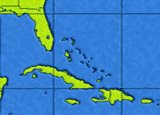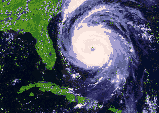|
Back to Florida Hurricane Main Page
Flood Damage Vs. Water Damage
There basically are two insurance policies that deal with a homeowner's
damage due to water - a flood insurance policy and a homeowners insurance
policy.
HOMEOWNERS INSURANCE
A homeowners insurance policy doesn't provide coverage for flood damage, but
it does provide coverage for many types of water damage to your home. Just
the opposite from flood damage.
A few examples of water damage include:
A hailstorm smashes your window, permitting hail or rain free access into
your home.
A heavy rain soaks through the roof, allowing water to drip through your
attic or ceiling.
A broken water pipe spews water into your home.
----------------------------------------------------------------------
FLOOD INSURANCE
A standard flood insurance policy, which is written by the National Flood
Insurance Program, provides coverage up to the policy limit for damage
caused by flood. The dictionary defines "flood" as a rising and overflowing
of a body of water onto normally dry land. For insurance purposes, the word
"rising" in this definition is the key to distinguishing flood damage from
water damage. Generally, damage caused by water that has been on the ground
at some point before damaging your home is considered to be flood damage.
A
handful of examples of flood damage include:
A nearby river overflows its banks and washes into your home.
A heavy rain seeps into your basement because the soil can't absorb the
water quickly enough
A heavy rain or flash flood causes the hill behind your house to collapse
into a mud slide that oozes into your home.
Unlike homeowners insurance, which is a private market, flood insurance is
backed by the federal government and run through the Federal Emergency
Management Agency.
--------------------------------------------------------------
April 27, 2015
FLOOD INSURANCE REFORM BILL PASSES FLORIDA LEGISLATURE
Bill to encourage affordable private alternatives to federal flood insurance
The bill passed in the Senate with unanimous support and was signed into law
by Florida Governor Rick Scott. “This bill gives Floridians an affordable
option that may keep them in their homes, and empowers homeowners to take
control of their flood insurance,”
Under the expanded options, policyholders will be
able to choose the amount of coverage they would like to have on their
property, such as reducing coverage down to the value of their mortgage or
excluding coverage for contents of their structure.
For more information on SB 1094 visit
http://flsenate.gov/Session/Bill/2015/1094
----------------------------------------------------------------------
Biggert-Waters Flood Insurance Reform Act of 2012 repealed.
Flood insurance
relief becomes law
WASHINGTON – March 24, 2014
Under the just-passed bill H.R. 3370, the purchaser is treated the same
as the current property owner. Flood insurance rates may still go up for a
buyer under rules in the new law, but they won’t rise any more than they
would have if the current owner retained the property.
March 23, 2014
The US Senate passed The Homeowner Flood Insurance Affordability Act.
It refunds policyholders who purchased
pre-FIRM homes after Biggert-Waters (7/6/12) and were subsequently charged
higher rates
The bill no longer requires the cost of flood insurance to readjust upon
the sale of a home in an area where the Federal Emergency Management Agency
(FEMA) subsidizes policies.
Home sales: As a result of the Biggert-Waters Flood Insurance Reform Act of
2012, the cost of flood insurance immediately rose to its actuarial rate at
the time of a home sale, and the buyer could be required to pay many
thousands more per year than the seller. The just-passed bill, however,
maintains flood insurance price continuity, and the purchaser is treated the
same as the current property owner.
Reinstates grandfathering: All post-FIRM (flood insurance rate map)
properties built to code at the time of construction are protected from rate
hikes that result from new data – the flood maps created after the fact.
Also important: The grandfathering stays with the property, not the policy.
Annual rate increases capped at 18%: FEMA cannot raise flood insurance rates
within a single property class beyond 15 percent per year. And it cannot
raise a single homeowner’s rate more than 18 percent per year. (Before
Biggert-Waters, the rate was 10 percent; until the new bill is signed, it’s
20 percent.)
Annual rate increases capped by home value: The bill requires a 5 percent
minimum annual increase on pre-FIRM primary residence policies that are not
at full risk, but it also says FEMA must try to minimize the number of
policyholders that are charged an increase greater than 1 percent of their
flood coverage. For example, a home covered for $250,000 in flood damage
might face a yearly increase no higher than $2,500.
The new bill includes several other provisions, including preserving the
basement exception, allowing for payments to be made in monthly installments
and reimbursing policy holders for successful map appeals.
--------------------------------------------------------------------
March 5th 2014
People who bought homes after the passage of the 2012 Biggert-Waters Act and
saw huge premium spikes could be eligible for a refund. On average, premiums
would go by up 15 percent each year with a hard cap of 18 percent.
A policy surcharge of $25 for primary residences and $250 for other
properties would go into a reserve fund to ensure the program has the
financial wherewithal to pay claims in the event of a Hurricane Katrina-like
catastrophe.
--------------------------------------------------------------------
July 21, 2014 - Insurance companies will begin to issue refunds for
applicable policyholders beginning Oct. 1, 2014, and all checks should be
sent before Dec. 31, 2014. The refunds will go to homeowners that paid
higher flood insurance rates before Congress passed the Act.
The Grimm-Cassidy Substitute Amendment to the Homeowner Flood Insurance
Affordability Act (H.R. 3370) effectively lowers many flood insurance
premium rates. It reinstates grandfathered rates, repeals the home sale/new
policy rate increase trigger, provides refunds for people who bought
pre-FIRM subsidized homes without being informed of rate increases and caps
flood insurance rate increases, among other things.
---------------------------------------------------------------------
Jan. 19, 2012 - The state’s insurer of
last resort has halted the runaway growth of policyholders in
recent months and begun to reduce its size and the corresponding
risk it presents to millions of Floridians, the company’s
president told Gov. Rick Scott and the Cabinet on Wednesday.
Scott Wallace, who is leaving as president of state-backed
Citizens Property Insurance Corp. in early April, said its
number of policies have leveled off at roughly 1,470,000 in
recent weeks after more than a year of increasing by an
estimated 30,000 policies a month.
Wallace’s report was music to the ears of Gov. Rick Scott, who
has made it a top priority for Citizens to once again be a
last-resort backup, if not sold, instead of the state’s largest
insurer of businesses and homes. If Citizens were unable to pay
claims, the difference would have to be made up by all Florida
residents with insurance on their homes, businesses and
vehicles.
“We’re starting to depopulate and not growing and that’s all
good,” Scott said afterward. “We’re making progress.”
Wallace told reporters afterward in response to a question that
he could foresee a time when Citizens could be attractive to a
potential buyer in the private sector.
“That will require some additional change and I think we’re
headed in that direction,” Wallace said.
But that could be some time away yet. Because of the gigantic
number of policies in Citizens’ portfolio, the company’s overall
exposure is estimated at $500 billion and far exceeds its
ability to pay claims in the aftermath of a catastrophic
hurricane or series of storms.
Any shortfall would have to be made up by a surcharge on not
only Citizens’ policyholders, but also consumers who have
coverage on their homes, businesses, boats and other assets with
other companies.
Wallace said Citizens is also behind several of the bills
working their way through the Legislature that are designed to
accommodate some of the changes needed to reduce the company’s
size.
Scott also applauded Citizens for working closely with the
Office of Insurance Regulation (OIR).
Wallace said OIR has signed off on 30 of its recommendations
designed to reduce Citizens’ client base and exposure
simultaneously. They include a maximum of $1 million coverage
for properties in coastal areas, a mandatory 10 percent
deductible on sinkhole policies and the reduction of personal
liability coverage from $300,000 to $100,000.
Created by the Legislature in 2002, Citizens was designed to
provide insurance to homeowners in high-risk areas and those who
cannot find coverage in the private market. It was largely an
offshoot of an underwriting association formed by the state in
the aftermath of Hurricane Andrew in August 1992.
However, a series of storms in 2004 and 2005 led to several
private insurers either pulling out of the state or cutting back
on the number homes or businesses it would provide coverage on
and Citizens was no longer the “insurer of last resort.”
Wallace, 59, announced earlier this month that he plans to leave
Citizens in early April after six years at the company. He is
just the second CEO of the company that was formed.
“I really came to a fork in the road in my career,” he said. “I
need to take some time and figure out where I want to land.”
Copyright © 2012 The Associated Press, Brent Kallestad.
Back to Florida Hurricane Main Page
PREPARATIONS - HOME SAFETY Food, Water, Pets, Drowning etc.
Hurricane Evacuation Check List
Hurricane Preparations Safety Pt 1
Hurricane
Preparations Safety Pt 2
Drinking
Water Hurricane Pollution
How to Choose
a Generator
Protect From Flying Debris Wind
Damage
Rebuilding Homes Hurricane
Damage
Gulf Loop Florida Map
Florida Hurricane
Home Insurance
Biggest Waves
Hurricane Ivan |



